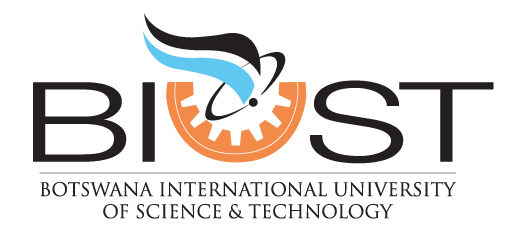During the official launch of the MIT–BIUST Student Entrepreneurship Fellowship Programme, one of the fellows, Ms. Bertha Moiketsi, a PhD student in Biological Sciences and Biotechnology at BIUST, shared a powerful vision for the future of medicinal innovation in Botswana.
When asked, “Looking ahead, how do you see your project and this fellowship contributing to building an innovative Botswana?” Ms. Moiketsi responded with insight and determination, outlining how her venture is set to transform the nation’s scientific, health, and economic landscape.
“The key innovation to my venture is the ability to rapidly produce large numbers of genetically identical, disease-free medicinal plants from a small amount of starting plant material, while maintaining the desired medicinal properties,” she explained. “This will allow for efficient propagation of endangered indigenous medicinal plants to ensure consistent quality and yield of medicinal compounds.”
Her research focuses on direct micropropagation, a cutting-edge biotechnology technique that enables the mass production of high-quality medicinal plants in a controlled environment. According to Ms. Moiketsi, this approach is vital for pharmaceutical and nutraceutical industries, which require in vitro cultures or propagation protocols for medicinal plants that have not yet been fully explored as potential sources of therapeutic drugs.
Through her venture, Ms. Moiketsi envisions significant contributions to Botswana’s economic, social, health, and conservation sectors:
Advancing Drug Discovery and Research
Direct micropropagation provides a scientific platform for exploring indigenous medicinal plants as potential sources of therapeutic drugs. Ms. Moiketsi draws parallels to the discovery of Artemisinin, a Chinese antimalarial drug derived from Artemisia annua — a herb that had to undergo direct micropropagation before its medicinal potential was fully realized. Similarly, Botswana’s indigenous plants can be explored through this method, paving the way for safer, plant-based therapeutics with fewer side effects.
Reducing Botswana’s Pharmaceutical Import Bill
Botswana currently spends an estimated P100 million annually on imported pharmaceuticals and therapeutic drugs. At the height of the COVID-19 pandemic in 2021, the government’s expenditure on imported medicines soared to over P180 million. By promoting local biosynthesis of biopharmaceuticals through direct micropropagation, Ms. Moiketsi’s venture could help reduce this financial burden and enable funds to be redirected toward other national priorities.
Ensuring Sustainability and Economic Diversification
Direct micropropagation offers a consistent and sustainable supply of medicinal plants, reducing pressure on wild populations and supporting large-scale production. Moreover, locally developed biopharmaceuticals could become exportable products, diversifying Botswana’s economy and positioning the nation as a key player in Africa’s growing biotechnology sector.
Conserving Indigenous Heritage and Biodiversity
Climate change and overharvesting have pushed many indigenous medicinal plants toward endangerment, threatening both biodiversity and traditional knowledge systems. Ms. Moiketsi views her work as a mission to preserve Botswana’s natural and cultural heritage. “Because of these challenges, our indigenous knowledge about traditional medical practices is under threat of extinction,” she said. “That means part of my roots and heritage as a Motswana is under threat — which I won’t allow to happen as long as I can help it.”
Building National Ownership in Biopharmaceutical Production
By developing the capacity to produce biopharmaceuticals locally, Botswana will gain ownership and sovereignty over its natural resources and products. This ensures that foreign companies cannot claim rights over locally discovered or cultivated medicinal resources, strengthening Botswana’s position in global biotechnological innovation.
Through her participation in the MIT–BIUST Fellowship, Ms. Moiketsi exemplifies the spirit of innovation and national pride that the program seeks to inspire. Her venture represents more than just scientific advancement — it is a commitment to building a self-reliant, innovative, and sustainable Botswana.
